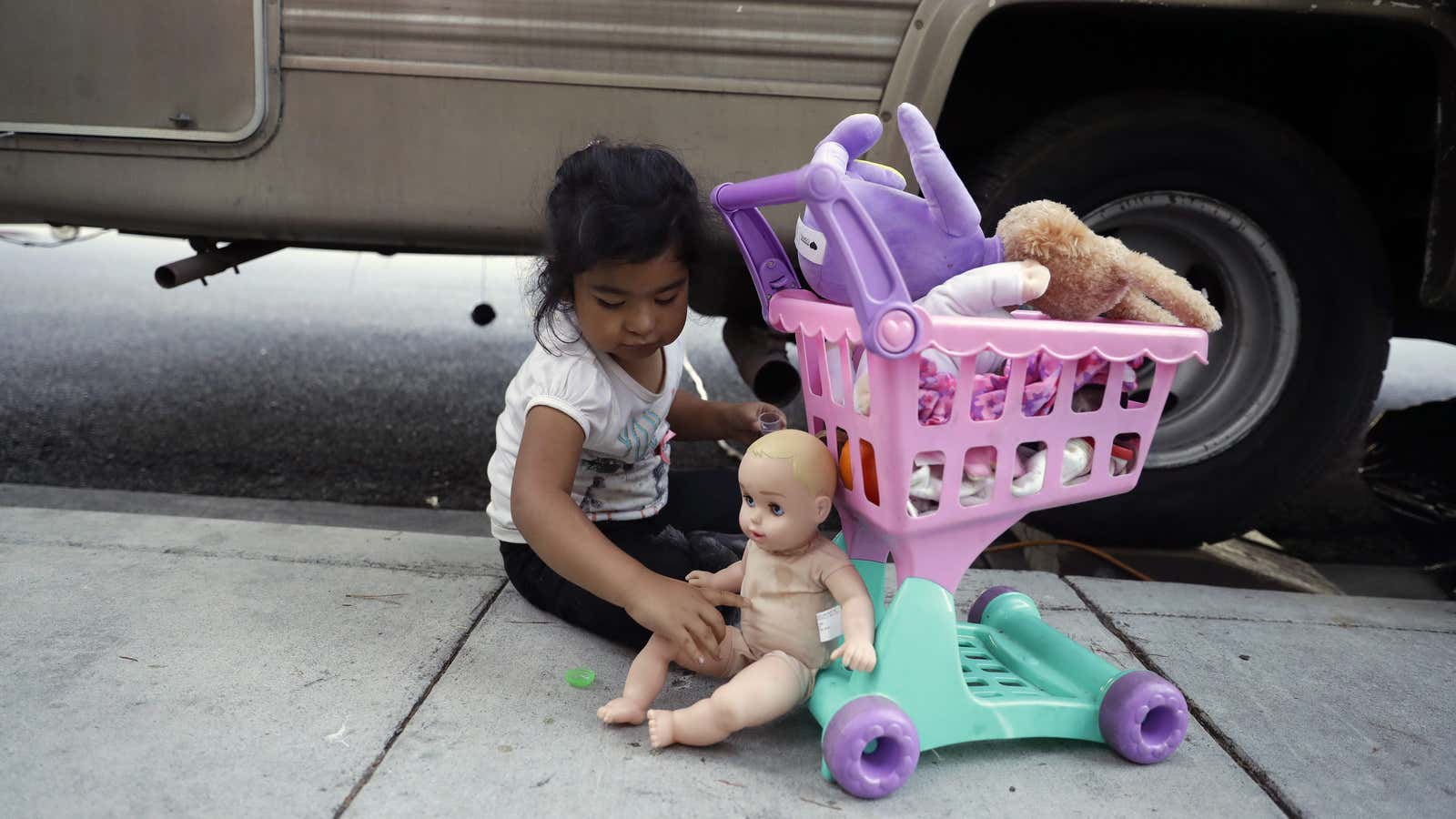There is a poor country hiding inside the world’s richest nation. So thinks the United Nations (UN), which has sent an envoy led by New York University law and human rights professor Philip Alston, to investigate extreme poverty across the US.
In a country that creates more money than any other, America’s failure to distribute that wealth has attracted the kind of attention and research the UN typically reserves for developing nations. The mission began on Dec. 1 and will collect information in California, West Virginia, Alabama, Georgia, Puerto Rico, and Washington, DC.
In a statement presenting the project, Alston acknowledged that “some might ask why a UN Special Rapporteur on extreme poverty and human rights would visit a country as rich as the United States. But despite great wealth in the US, there also exists great poverty and inequality.”
By many standards—from health to education to environment—the US is far behind other rich countries, and Congress is poised to exacerbate existing inequality with a new tax bill that rewards the wealthy and helps them keep profits within the family.
Alston said that the US “has been very keen for me and others to investigate human rights issues in other countries, which I have done. Now, it’s the turn to look at what’s going on in the US.”
The envoy will focus closely on specific poverty-related issues that have risen in the US in recent years, including an outbreak of hookworm in Alabama—a disease linked with poverty and poor sanitary conditions typically found in South Asia and Subsaharan Africa.
Other subjects of investigation include voter suppression, gaps in civil rights, sanitation (including water quality), and access to health care. All this with the understanding that poverty is a result of political choices: “Civilized governments don’t say ‘go and make it on your own, and if you can’t, then bad luck,'” explains Alston. “The idea of human rights is that people have basic dignities that is the role of the government to ensure that no one falls below a decent level.”
Alston will share the results of his research mission on Dec. 15 in Washington, DC.
